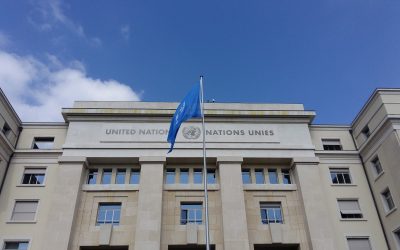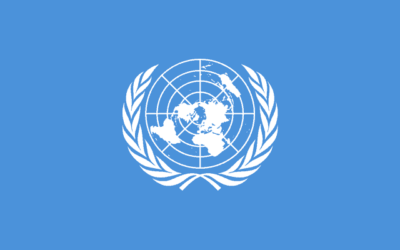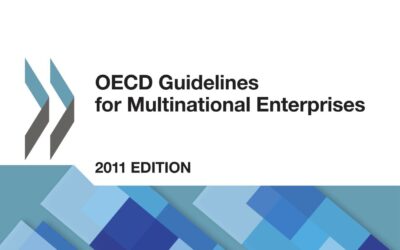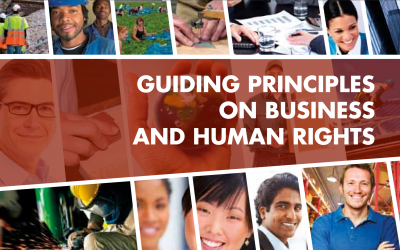Wytyczne ONZ dot. biznesu i praw człowieka podkreślają ogromne znaczenie dostępu ofiar nadużyć w sferze praw człowieka do środków naprawczych. W komentarzu do Wytycznych zapisano, że państwa i przedsiębiorstwa mogą zapewnić kilka różnych form środków naprawczych, a należą do nich: przeprosiny, rekompensata, odbudowa, odszkodowanie, sankcje karne, nakazy i gwarancje niewystąpienia kolejnych naruszeń.
Podobnie jak w przypadku większości międzynarodowych standardów ochrony praw człowieka, obowiązek ich wypełniania spoczywa w głównej mierze na państwach. Zasada 25 wyjaśnia: “W ramach wypełniania obowiązku ochrony przed naruszeniami praw człowieka przez przedsiębiorstwa państwa muszą podejmować odpowiednie działania – z wykorzystaniem środków sądowych, administracyjnych i legislacyjnych – które zapewnią, że w przypadku zaistnienia naruszeń praw człowieka na ich terytorium i/lub w ich jurysdykcji osoby dotknięte konsekwencjami tych naruszeń będą miały dostęp do środków naprawczych.”
Choć to na państwach spoczywa główny ciężar zapewnienia realizacji filaru trzeciego, przedsiębiorstwa także powinny aktywnie dbać o zapewnienie dostępu do środków zaradczych i naprawczych. Wytyczne ONZ nr 29 i 30 opisują działania, jakie firmy oraz organizacje przedsiębiorców powinny podejmować, by ten dostęp zapewnić:
- “Aby umożliwić wczesne reagowanie na skargi oraz sprawne ich rozpatrywanie, przedsiębiorstwa mają stworzyć skuteczne mechanizmy skargowe na poziomie operacyjnym lub przyłączyć się do już istniejących takich mechanizmów przeznaczonych dla osób i społeczności, które mogą odczuwać negatywne konsekwencje działalności.”
- “Inicjatywy branżowe, zrzeszające wielu interesariuszy oraz inne przedsięwzięcia oparte na współpracy i poszanowaniu standardów w sferze praw człowieka powinny zapewniać skuteczne mechanizmy skargowe.”
Więcej o środkach naprawczych zapewnianych przez państwo przeczytasz tutaj a o niepaństwowych tutaj. Informacje na temat mechanizmów skargowych są dostępne tutaj.
Materiał wideo [tylko w jęz. angielskim]: https://www.youtube.com/watch?list=PLUm8zu1CbL75JyCPr_DVRvGl5T9XEr5WU&v=24kM8zxq270










